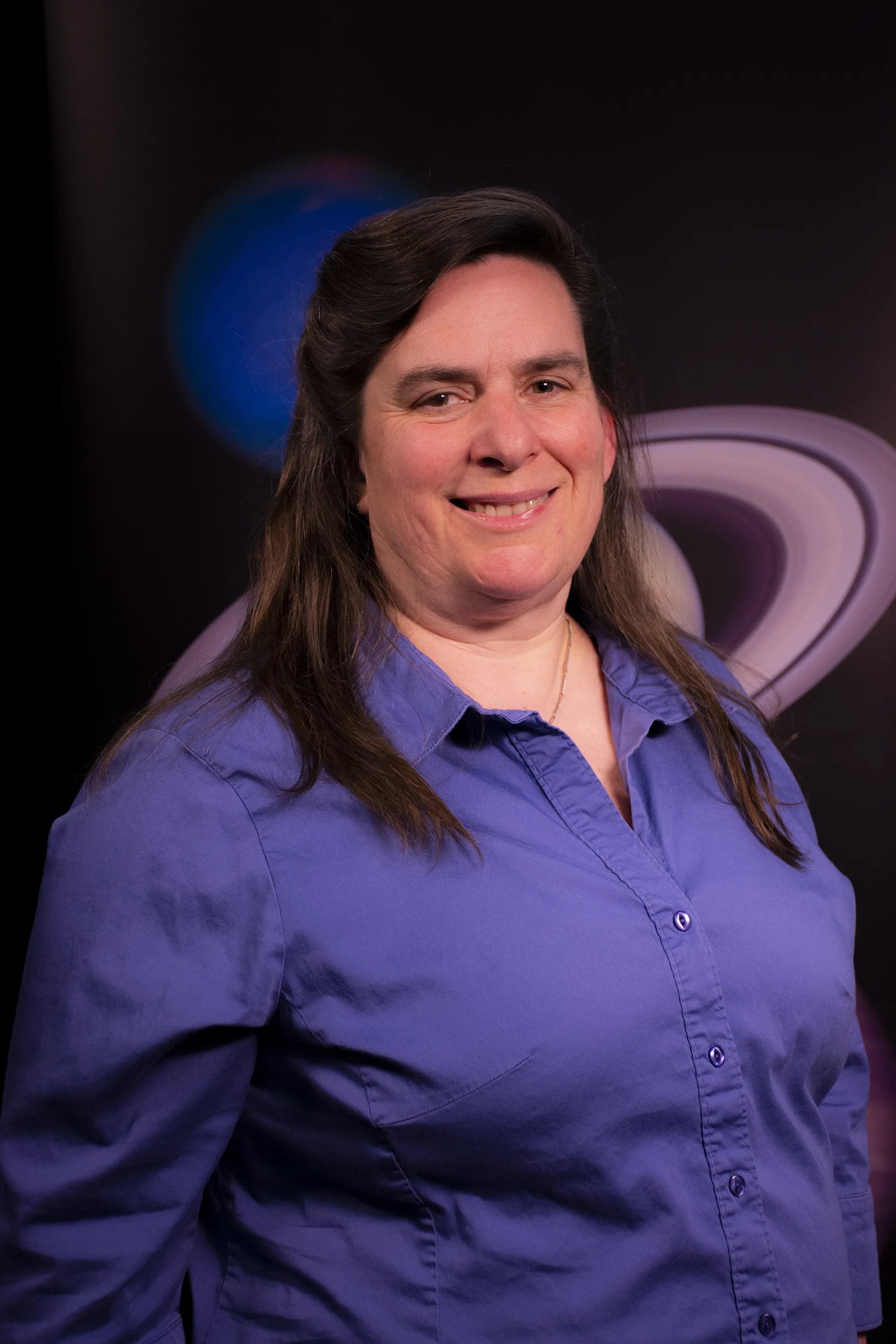
Lynn Bassford
Flight Operations Manager
Lynn Bassford was doing a house-sitting job for the head of the computer science department at her former university when her mother called one night. “She said, ‘You have a message on the answering machine. Mr. Adventure called and wants to know if you’d like a job working in space on a telescope for NASA.”
The name, as it turned out, was Ed Venter. He worked with Lockheed Martin, and the job was as a flight controller for the Hubble Space Telescope.
“I was so excited,” she said. “I’d always wanted to be an astronaut and it was as close as I could be. I’m working at NASA — wow.”
Growing up in Massachusetts, Lynn had always been interested in science, engineering and math. “One day I saw Sally Ride up with the space shuttle and they said she had a degree in physics, and I said, ‘I’m going to get a degree in physics!’ I didn’t really know what physics was.”
She chose the University of Lowell, now known as UMass Lowell, for its in-state tuition price and engineering program, and she graduated with a bachelor’s degree in physics. Then she’d gone through a copy of the magazine “Physics Today” and sent out resumes to every company she could find in its pages.
“I must have sent out 200 resumes and applications combined,” she recalled. “With physics, it wasn’t quite clear where you go for a position.”
Lockheed Martin had responded with instructions to apply to the closest of the company’s multiple locations. Lynn had applied to all 10, and her resume had made it into hands at Goddard Space Flight Center in Maryland.
Hubble was new when she started working on it, and it was still affected by the mirror flaw that blurred its early images. After getting the job, Lynn went back home to share the good news with some high school teachers she was close with. “I told them where I was going to work and they were like, ‘You go fix that telescope!’”
She would spend the next eight years on rotating shift work as a flight controller for different Hubble systems: communications, science instruments, electrical power, data management and more.
Eventually Lynn moved to a systems engineering position, making her responsible for the health and safety of Hubble’s Space Telescope Imaging Spectrograph and Wide Field and Planetary Camera 2 instruments, a job that fit well with her physics background. She then took on the role of Hubble science instruments systems engineering lead for about three years before becoming missions operations manager in 2005.
At the time the role had always been filled by a man, but the acronym was MOM, she recalled. “The women we had on the program were excited — we joked about how I was the first female MOM.”
Today Lynn remains missions operations manager, coordinating the Space Telescope Operations Control Center resources — including hardware, systems and procedures used to command Hubble — as well as the Operations Support Room where system engineers analyze data from Hubble to make sure the telescope stays safe and healthy. She is also the flight operations manager, leading the engineers who send Hubble commands and receive and quality-check data from the telescope. Lastly, she’s an administrative manager for the engineers, which involves hiring, coaching, training and performance of the people who are responsible for the commanding, health and safety of the telescope.
“I don’t really think of them as separate roles,” Lynn said. “I’m a bit of a troubleshooter. If it’s within my capability, it’s ‘whatever needs to be done.’ Some people just like to sit and do the same thing, but if you give me something new, I’m like ‘OK, I’m going to take that as a challenge and make it work — and then simplify it into training for others.”
